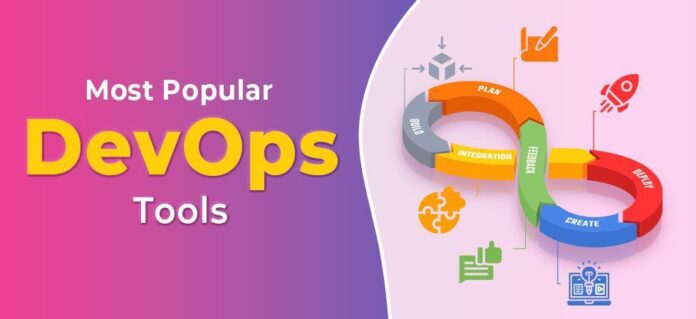DevOps is revolutionizing the way applications are built and delivered, through cultural, process, and technical changes that stress integration and optimization. One of the best features of DevOps is leveraging on DevOps tools that enable development and operations teams in their work. These tools assist in the various stages of creating, developing, deploying and maintaining applications and systems for faster, better, and more reliable system releases.
Core Elements of DevOps
The foundation of DevOps tools lies in the following principles:
Collaboration: DevOps is the concept of bringing together development and operations teams and others interested in the delivery of IT services while focusing on collaboration and trust.
Automation: Continuous delivery tools are used to perform some of the basic tasks which are building, testing and deploying eliminating the need for human involvement.
Continuous Integration (CI) and Continuous Delivery (CD): Continuous Integration and Continuous Deployment are the driving force behind automation of code changes to be integrated, tested and deployed to production often.
Microservices and Containerization: When using DevOps, for example, tools like Docker and Kubernetes, applications can be divided into microservices which become easier to scale.
Infrastructure as Code (IaC): Terraform helps in defining infrastructure as code and Ansible helps in managing the infrastructure in code.
Monitoring and Feedback Loops: The monitoring of the system should be done constantly, to have early signs of any arising problems. Other tools like Prometheus and Grafana give real-time data improving system health and performance monitoring.
Security (DevSecOps): Security is then built into the DevOps cycle and DevOps tools check for security issues throughout the SDLC.
The Best DevOps Tools to Look Forward to in 2025
Here is a list of some of the most cutting-edge DevOp tools to keep an eye on in 2025:
Git (GitHub, GitLab, Bitbucket): Git is the fundamental technology of source code management, wherein version control and collaboration are simplified.
Jenkins: Being a widely used open-source automation tool, Jenkins makes CI/CD an easy process, enabling build, test, and deploy processes that are part of the DevOps tools set.
Docker: Docker offers containerization solutions for application delivery which is key in modern development hence the DevOps teams.
Kubernetes: This orchestration platform for containers improves on the management and deployment of application containers, boosting the flow of the process.
Ansible: Application that supports configuration management by automating tasks like application deployment and system setup and therefore is an essential part of the DevOps toolchain in infrastructure management.
Terraform: An IaC tool that enables users to describe and create infrastructure through configuration languages.
Prometheus: An effective tool for monitoring and notification, Prometheus helps identify an application’s performance and provide necessary knowledge about the state of the health system.
Jira: This project management tool is compatible with DevOps tools to provide an easier way of managing tasks, sprints and development cycles.
Splunk: Splunk used to monitor, visualize and analyze machine-generated big data to gain operational intelligence.
Nagios: An actively monitoring system that can offer valuable information on your systems and network environment so that you can manage the incidents on time.
DevOps tools have a specific role in the future development of technologies.

In advance, DevOps tools will be extended its capability with the help of new technologies such as Artificial intelligence, Machine Learning and Cloud Computing. By 2025, the DevOp tools are expected to become even smarter to enable organizations to handle the complexity of the systems and even larger scale of applications.
Based on this observation, it will be possible to conclude that as enterprises progress with development operations, there will be greater need to adopt enhanced DevOps tools. All of these tools will remain as steady aids that perform repetitive operations, enhance productivity, and improve the timeliness of delivering quality software.
The effective use of DevOp tools within your SDLC is necessary to achieve faster and better quality delivery of products and foster better communication between teams. From Jenkins automation or Kubernetes container orchestration, these DevOp tools ensure that organizations are always up to date and ready to meet the market challenges. In view of this, the practice of utilizing DevOps tools will undoubtedly proceed towards the future horizons as we approach 2025.
Source:: simplilearn.com



